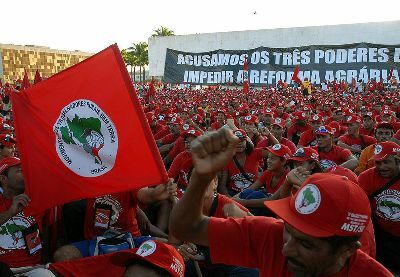Land reform it is basically the fairest redistribution of land.
Land concentration in Brazil is the result of a disorganized distribution of land that happened in the past, often destined for those who did not need it. Not to mention that the lots of land were gigantic. Currently, a large part of Brazilian land is in the hands of a minority of families, which promotes the emergence of a huge number of workers without land to cultivate their livelihood and their family.
The existing disparity in the Brazilian land structure generates dissatisfaction among various classes of society (rural workers, political scientists, sociologists, religious entities, among others), who support the implementation of land reform. This thought is based on two determining points: the first is the social factor and the second, the economic. The social factor is related to the fact that there are thousands of families who need a piece of land to grow their food, which also, in a way, becomes their job. The economic factor, on the other hand, refers to the objectives linked to the production of food for internal supply, forcing the reduction of their prices, which have recently been inflated due to the world crisis of foods. Also including that these small producers can become exporters to several countries around the world, which would contribute to the country's economy.
In an attempt to solve the factors mentioned above, the New Federal Constitution of 1988 brought with it an article which determines the application of agrarian reform in rural properties that are in the unproductive category. However, the article failed to express specifically what characterizes an unproductive property. The lack of specific information regarding this type of property led to the rise of problems related to the struggle by land, even emerging armed clashes that left people dead and wounded, such as the Eldorado dos Carajás massacre (For).
Do not stop now... There's more after the advertising ;)
The imprecision of information leads the landless to interpret the article of the Constitution “at the letter” Federal, therefore, when this group sees an unproductive property, they see themselves in the right to invade it. On the other side of the issue are the owners of these lands who always deny this condition, claiming that they are productive and that the invasion is nothing more than an illegal and criminal act. In this case, the owner activates the government, demanding an attitude.
The incidence of conflicts involving landless workers has become more widespread after the emergence of the largest movement for land ownership in Brazil, the MST (Movement of Landless Rural Workers). Workers integrated to this movement promote protests and invasions in different parts of Brazil. Some offensive attitudes on the part of the group prevent the movement from gaining national public opinion, which would be a positive point for consolidating the application of agrarian reform in Brazil. The reality is that this issue is far from having a solution, given the complexity that involves it, especially when it comes to a capitalist country like ours.

Manifestation of the Landless Workers Movement, MST ¹
_____________________
¹ Image credits: Brazil Agency
By Eduardo de Freitas
Graduated in Geography
Would you like to reference this text in a school or academic work? Look:
DANTAS, James. "Land reform "; Brazil School. Available in: https://brasilescola.uol.com.br/brasil/reforma-agraria-1.htm. Accessed on June 27, 2021.

